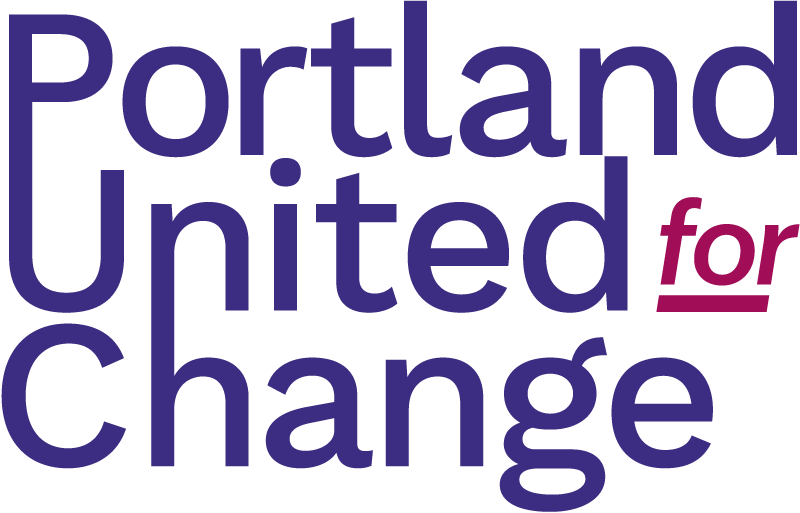Portland Voters Approve Measure 26-228: Ranked Choice Voting, City Council Districts, and Professional City Management
Supporters celebrate the passage of Measure 26-228 at Spirit of 77 in Portland, Oregon. The measure will change Portland’s city government structure and implement ranked choice voting and City Council districts in Portland.
An historic coalition of over 100, civic groups, small businesses, labor unions, political scientists, and neighborhoods celebrated strengthening democracy and ending the city’s dysfunctional commission form of government.
Measure 26-228, which was referred to voters by 85% of the City Charter Review Commission, will immediately begin a 2-year implementation timeline with two commissions to draw City Council district lines and set salaries for City Councilors.
[PORTLAND, ORE.] — With 29% voter turnout in Oregon so far, the Portland United for Change campaign declared victory as early returns show 55.5% of voters said yes to Portland Measure 26-228. With a lead of over 16,000 votes so far, remaining votes would need to come in at 45% yes in order for the outcome to change.
The measure’s passage means the City of Portland will use ranked choice voting in elections for mayor, auditor and city council, create four City Council districts with three representatives each, and appoint a professional city administrator to manage all city services.
“Portlanders are ready for change. The passage of Measure 26-228 is an historic step towards a democracy that truly gives all Portlanders a seat at the decision making table and a government that meets their basic needs,” said Sol Mora, Portland United for Change campaign manager. “This victory was powered by the people for the people.”
Portland’s independent Charter Review Commission referred Measure 26-228 to voters after 18 months of community engagement and worldwide research on creating an effective government structure and an inclusive democracy. In the months leading up to the election, an historic coalition of over 100 diverse community organizations, businesses, neighborhood groups, labor unions, political scientists, and trusted civic leaders came together to endorse the measure. Supporters included the League of Women Voters of Portland, the ACLU of Oregon, the NAACP Portland Branch, Oregon Food Bank, Business for a Better Portland, the Portland Association of Teachers, SEIU Local 49, and AFSCME Local 189, the largest union representing Portland city employees.
“This is one of the most important votes Portlanders have ever taken,” said Melanie Billings-Yun, a former co-chair of the Portland Charter Review Commission who personally met with over 200 community groups to talk about Measure 26-228. “The people have spoken: an overwhelming YES to this vision for a government that serves all of its constituents well. We should all feel proud of what we have accomplished together.”
“Portland has finally taken action to fix its broken government structure and support the business community,” said Hope Beraka, Owner & Managing Principal Broker at Think Real Estate and board chair of Business for a Better Portland. “This is such good news for small business owners like myself. No longer will we have to suffer the dysfunction of uncoordinated bureaus. Instead, the city will better reflect its growing and changing constituents and provide efficient and responsive services to all.”
“At long last, communities of color will have a fair shot at consistent and meaningful representation at Portland City Hall,” said Marcus C. Mundy, Executive Director of the Coalition of Communities of Color. “Only five people of color have served on Portland City Council in its entire history. Only nine have been women, and only two have lived east of 82nd Avenue. Our current system leaves too many Portlanders voiceless and frustrated at the ineffectiveness of the commission form of government. Now that voters have approved Measure 26-228, all of this will change: ranked choice voting, multi-member districts, and professional city management will get Portland on track to a brighter future for all of us.”
With the passage of Measure 26-228, Portland will become the largest city in the United States to use both ranked choice voting and multi-member City Council districts, a combination known as proportional representation that political scientists agree is a “gold standard” of democratic systems. Starting in November 2024, Portland voters will be able to rank candidates for city offices in order of preference and the top three candidates in each of the four City Council districts will be sent to City Hall. The Mayor and City Auditor will both be elected city-wide, and the new Mayor-Council form of government will take effect in January 2025. For more information on implementation of Measure 26-228, visit the City of Portland’s website.
The City of Portland will be responsible for the implementation process itself. Portland United for Change, as a coalition, will shift into a role of supporting community engagement during the implementation of Measure 26-228. Sign up for emails to stay engaged with our efforts.
###
For Immediate Release: Tuesday, November 8th, 2022
Contact: Damon Motz-Storey: damon [at] colororegon [dot] org

